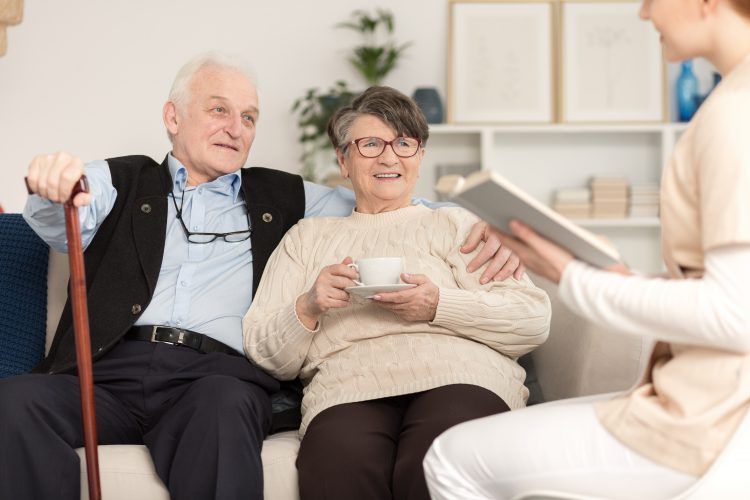If you’re the talented, professional caregiver to a member of your own family, you’re in a wonderful position. You get to offer loving care and support to someone important to you as they heal and work back towards a life of independence, something they just couldn’t do without you. It’s vital for them, it’s rewarding for you: it’s truly a win-win all around. But just because you have this great job with someone you care about and trust doesn’t mean things will be a walk in the park: whether you’re caring for a family member or someone you just met, caregiving can be a challenge. Preparing for your day and taking extra steps to ensure you’re providing the best care possible will not only help your family member heal and grow, but will ensure that you get the most out of your job as well. So, ready to be the best caregiver you can be? Here are seven tips to ensuring the care you provide is exceptional and the relationship you cultivate with your loved one is healthy and empowering for you both.
- Take care of your own health. No, you don’t need to be a body-builder to give thoughtful and attentive care to your loved one. But depending on their needs, their level of mobility and a host of other factors, the physical aspects of caregiving could be demanding. You might find yourself carrying heavy groceries, lifting or assisting your loved one, pushing a wheelchair for long walks – all things that can wear on you if you’re not in the best shape. So join a gym! Stretch in the morning; do the things you need to do to make sure you’re in adequate shape to care for the person who needs you.
- Remain open to suggestion. In any job, it’s easy to fall into your own pattern or style of operation and to resist change. But the routine you and your loved one might have set up for yourself may not ultimately be in the best interest of their health. If doctors, nurses or other caregivers make suggestions or give advice, listen with open ears and consider thoughtfully the changes being proposed. And on that note:
- Learn how to communicate effectively with doctors. Your loved one might have challenges communicating or articulating their needs. But even if they don’t, a part of the care you provide is in playing an active role in your loved one’s care team, which includes doctors, nurses, and others. So make the most of those doctor’s visits: take notes during discussions, or bring a list of questions to go over while you’re at your loved one’s appointment. Make sure that when you communicate with doctors, you’re advocating for your loved one and working together with the doctor as a member of a team. This is definitely an art more than a science, but becoming an exceptional communicator is a vital part of providing the very best care.
- Give yourself breaks. Caregiving can be physically and emotionally draining, even if you’re working with a family member that you love and trust. So on weekends or evenings when opportunities arise to relax, take them! Read books, take naps, do what you need to do to mentally and physically recharge so that you can go into each day feeling great.
- Organize, organize, organize! Your loved one will likely have stacks of paperwork: medical discharge forms, pharmaceutical benefit information, insurance information… it’s a lot to keep up with! Help them keep organized and in control of this information by using file folders, binders, envelopes, or whatever works best so that you both know where to find this vital information when it’s needed.
- Be a detective. You need to be vigilant and watch out for a lot of different things when you’re caring for another person. First (obviously), you’re watching their health: are they deteriorating in any way? Showing signs of depression or stress? But you’re also watching other things. You’re watching the relationship with your loved one and their doctor – is this doctor answering the questions that need to be answered? You’re watching the news! Maybe new technologies are emerging that could benefit your loved one, or a new therapy has just been unveiled in your area that could help this person in some way. In so many ways, a caregiver needs to keep their ears open, their eyes peeled, and always be investigating for the sake of the person their caring for.
- Finally, seek help for yourself! You might be the only designated caregiver for your loved one, but you are NOT doing this alone. You have support – many, many resources and organizations are available to help make sure you are getting the most out of your job, and your loved one is getting the absolute best care available. At Ameribest Homecare, we’re here to make sure that you have everything you need to succeed as the qualified, talented caregiver to a person you love. Reach out to us with questions, concerns, or issues you’re having: we’re happy to help and provide you with the resources and tools you need to succeed!

